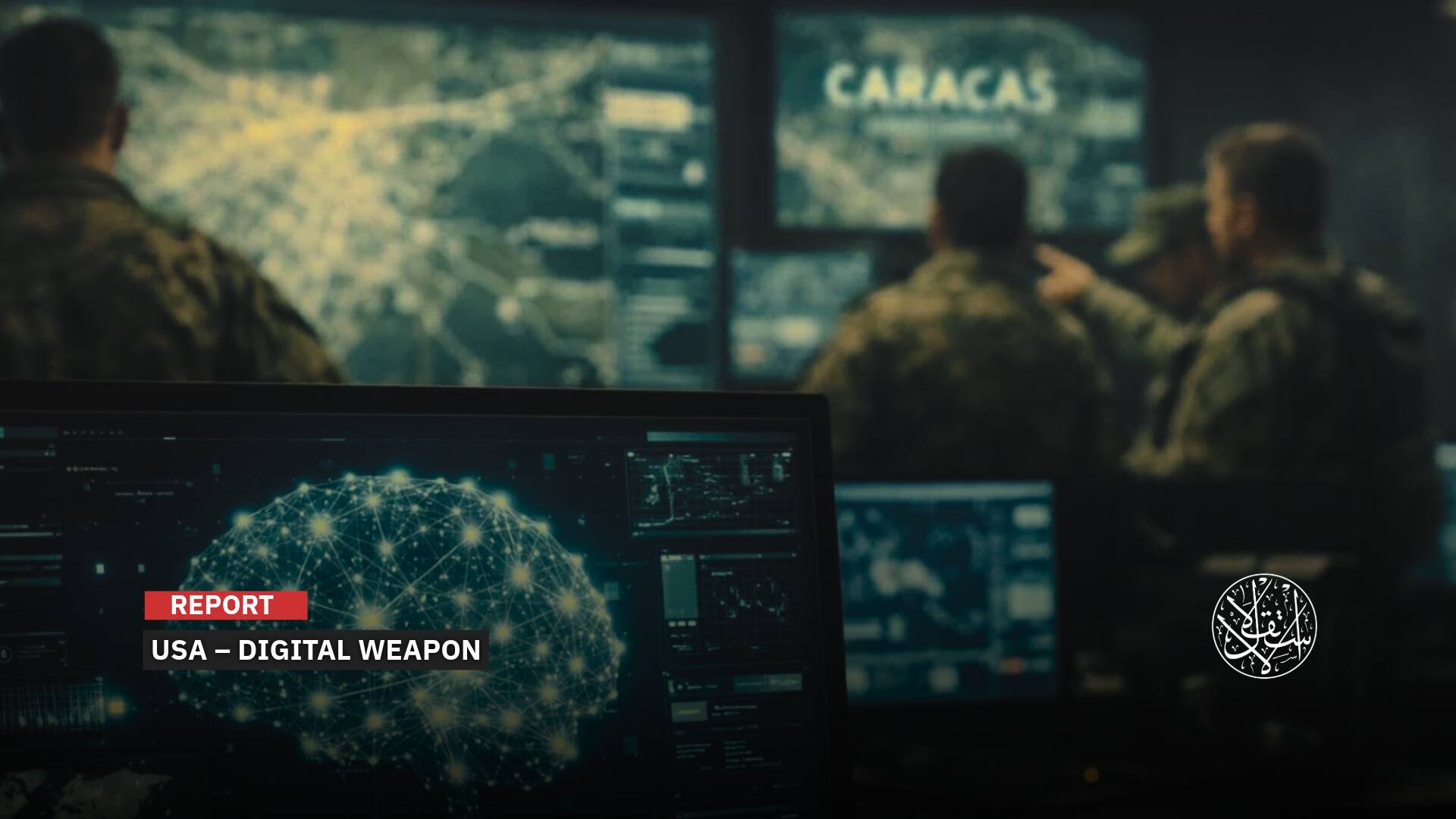UN Sanctions on Iran Leave Iraq Reeling: What is Happening
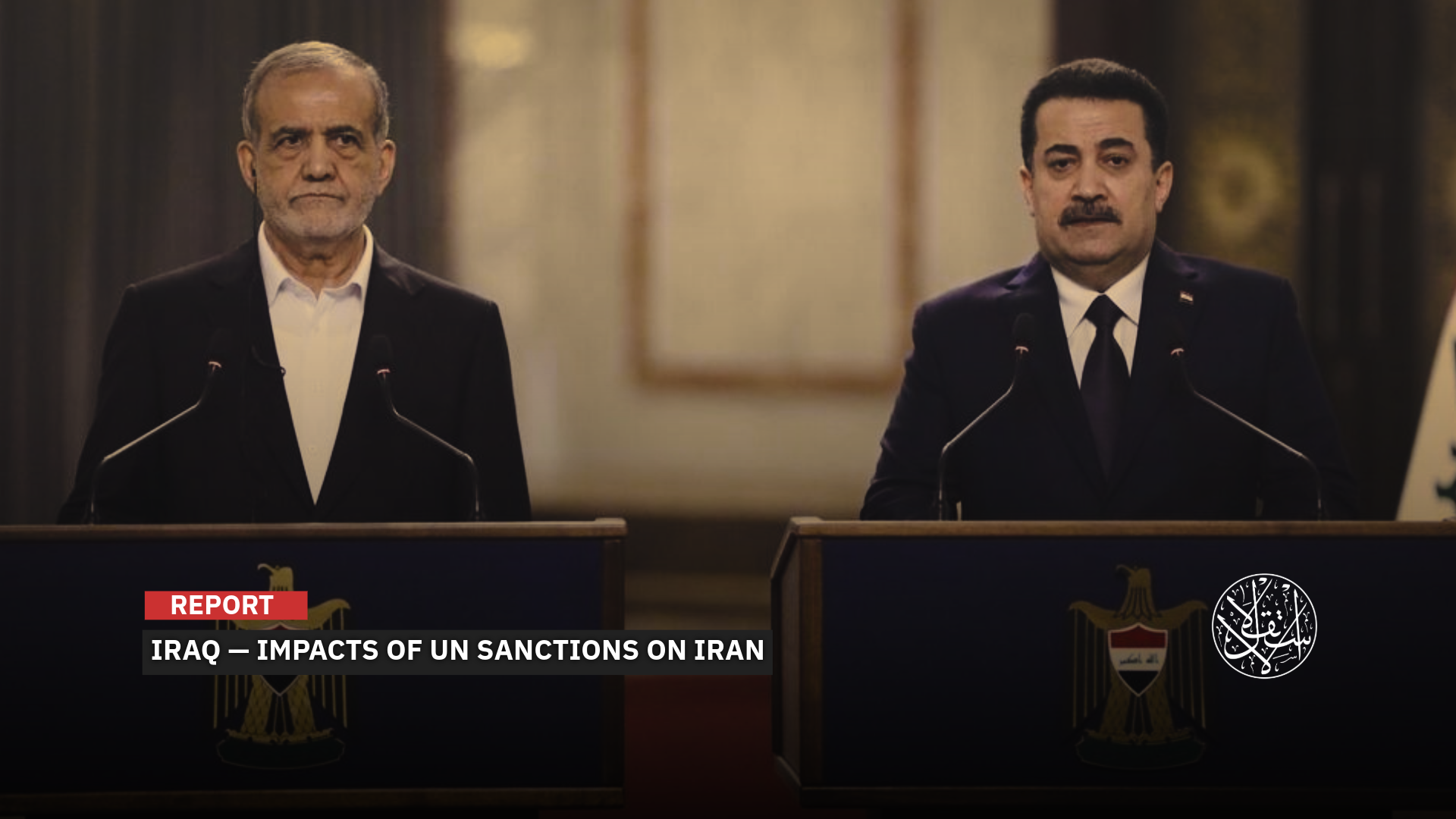
“Iraq will be the hardest hit country after Iran as the snapback mechanism is reinstated.”
As UN sanctions on Tehran take effect following the expiration of the so-called snapback mechanism, Iraqi political figures are warning of serious repercussions for their country, especially after Iranian President Masoud Pezeshkian hinted at Tehran’s plans to navigate the crisis.
On September 28, 2025, the E3 (Germany, France, and Britain) announced the reactivation of UN sanctions on Iran after a 30-day grace period. The move came in response to Tehran’s failure to meet its nuclear commitments.
The Troika called on Iran to resume negotiations with the United States over its nuclear program, allow International Atomic Energy Agency inspectors access to its nuclear sites, and transfer enriched uranium to Washington. Tehran agreed to the first two demands but rejected the third.
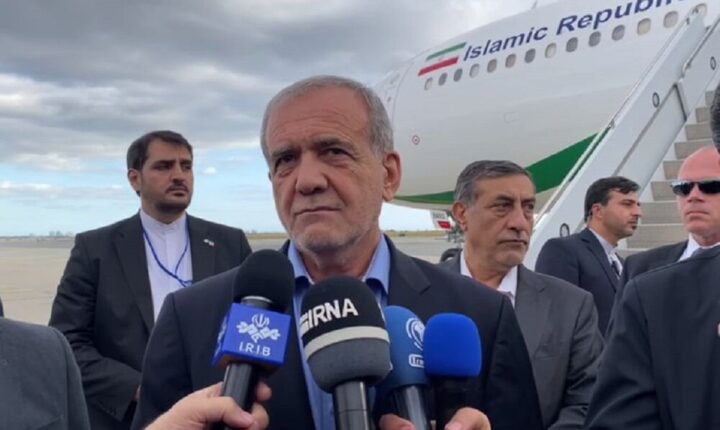
Iran’s Options
Hours before UN sanctions took effect, Iranian President Masoud Pezeshkian told reporters that Tehran had chosen to face the UN sanctions rather than comply with the tougher demand to hand over enriched uranium to Washington.
Returning from meetings at the UN General Assembly in New York on September 26, Pezeshkian said Iran had reached an understanding with European powers, but the United States took a different stance. He described Washington’s demand to transfer all enriched uranium in exchange for a one-month grace period as “ridiculous.”
He stressed that if Iran had to choose between these “illogical demands” and the snapback mechanism, it would choose the latter. He added that the activation of sanctions should not be seen as a crisis forcing Iran into submission.
On solutions, Pezeshkian highlighted strong ties with neighboring countries, active engagement with Eurasian states and Shanghai Cooperation Organization members, and relying on domestic support to safely navigate the situation.
Two months earlier, he told Iran’s National Security and Foreign Policy Committee that strengthening relations with neighbors would render the sanctions ineffective, emphasizing the urgency of improving regional ties.
On July 28, 2025, Tasnim News Agency quoted him saying that empowering provincial officials, particularly in border regions, would encourage broader regional engagement. He stressed that neighbors from Pakistan and Afghanistan to Azerbaijan, Armenia, Turkiye, and Iraq, as well as southern neighbors, have significant potential for cooperation that Iran should harness for mutual benefit.
On August 28, 2025, the three European signatories to the nuclear deal triggered the so-called snapback mechanism, notifying the UN Security Council that sanctions would be reinstated within 30 days if Iran failed to meet the conditions.
The snapback mechanism, part of the 2015 Iran nuclear deal, allows member states to automatically reinstate all previous UN sanctions if Iran breaches its obligations.
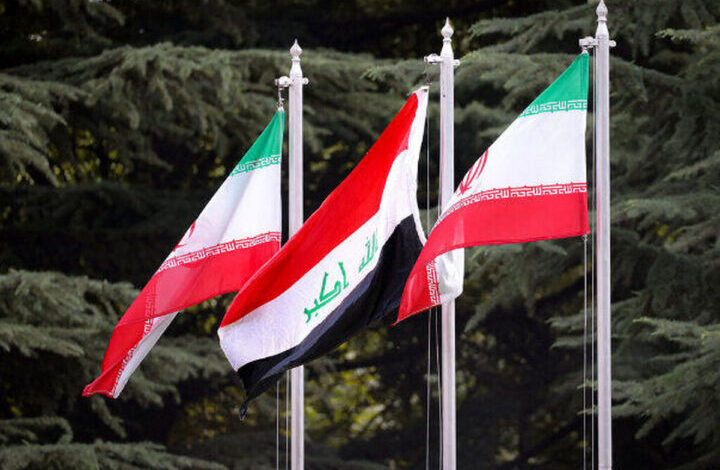
The Biggest Loser
On the impact of sanctions on Iraq, Iraqi political analyst and academic Hassan Janabi warned that reimposed sanctions on Iran would have direct repercussions on Iraq, which has long suffered under Iranian influence since the U.S. occupation in 2003.
“Iran will throw all its weight toward Iraq to revive its struggling economy, just as it did before 2015, by pulling hard currency from Iraqi markets in various ways, including flooding them with counterfeit local currency and other measures,” Janabi told Al-Estiklal.
“Iraq’s funds under Nouri al-Maliki’s government from 2006 to 2014 were diverted to Iran to help it weather sanctions, manage its regional wars, and support former head of the Syrian regime Bashar al-Assad to prevent his fall.”
“This time Iraq is at risk from the sanctions if it shows leniency and disregards Western pressure on Tehran, especially as President Donald Trump emphasizes that no country should violate measures imposed on Iran,” he warned.
Echoing this, Ihsane al-Shammari, head of the Political Thinking Center, said the renewed international sanctions on Iran would have “severe and complex” repercussions for Iraq, given that Baghdad serves as Tehran’s vital economic gateway under sanctions.
“After Iran, Iraq will be the hardest hit country due to the snapback mechanism, particularly as Iraq relies heavily on Iranian gas and electricity,” al-Shammari told Shafaq News on September 27.
“Tehran will intensify its use of Iraq as a geographic channel to circumvent sanctions, meaning increased dollar smuggling and accelerated unofficial activity. Iraq could become a stage for Iranian maneuvering, whether amid escalation with Israel or pressure on Washington,” he warned.
The Iraqi expert predicted that “Iran will double down on its political influence and will not allow Iraq to slip or weaken its allies within the country.”
Meanwhile, Iranian affairs expert Saleh al-Qazwini told the same news agency on September 27 that “Iran is wealthy and capable of surviving sanctions, but it will feel political pressure, particularly on aviation, delegation movements, and diplomatic relations.”
He added that the return of sanctions is “not the end of the road for Tehran but a recurring chapter in ongoing pressure,” noting that Iran faced similar conditions between 2010 and 2015 before signing the nuclear deal.
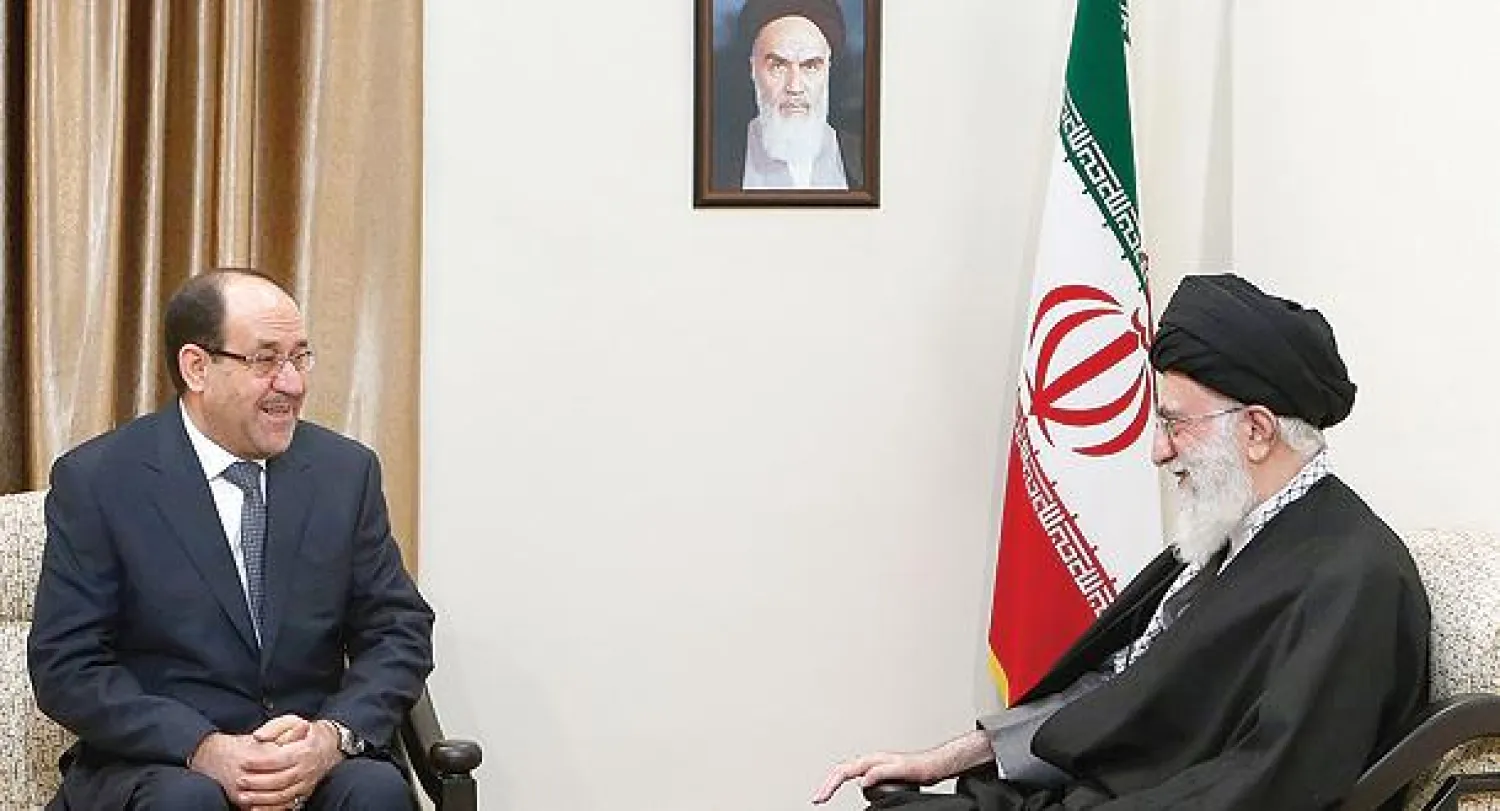
Previous Drain
Before the 2015 Iranian nuclear deal, Iraqi governments faced accusations of squandering hundreds of billions of dollars of citizens’ money, much of which allegedly flowed to Iran to ease the impact of Western sanctions.
In early May 2015, committees from the Iraqi parliament began investigating the loss of funds over the previous eight years to identify beneficiaries, including politicians and neighboring states, particularly Iran.
At the time, the parliamentary Committee of Integrity reported that budgets spent between 2006 and 2013 totaled around $727 billion, enough to rebuild Iraq entirely.
A team of Iraqi lawmakers prepared detailed studies on the financial losses under Prime Minister Nouri al-Maliki, according to an Anadolu Agency report on May 24, 2015.
This followed a call by then-Speaker of Parliament Salim al-Jabouri for a fully transparent investigation into the massive financial waste and the identification of beneficiaries, whether politicians or neighboring countries, paving the way for accountability.
In early May 2015, parliament received the final financial accounts for al-Maliki’s eight-year tenure for review and approval, but they were not ratified to avoid a political crisis amid the fight against ISIS, which controlled a third of the country in 2014.
During this period, investment in infrastructure projects remained absent, and basic services like housing, electricity, and water deteriorated further, alongside rising unemployment and extreme poverty in a country rich in oil reserves.
Starting in 2011, the Central Bank of Iraq capped the daily foreign currency auction at $100 million due to limited oversight mechanisms for money laundering, terrorism financing, and illegal foreign exchange use. Actual sales sometimes reached $280 million, raising suspicions of smuggling or laundering.
Former parliamentary finance committee head Ahmad Chalabi stated that the central bank sold up to $313 billion through foreign currency auctions between 2006 and 2014, equivalent to roughly 57 percent of Iraq’s $552 billion in oil revenues.
This far exceeded government imports for the period, which totaled just $115 billion, while the remaining $197 billion reportedly flowed to the private sector, far beyond its import needs.
Economic reports suggest the spike in dollar demand came from Iranian traders acquiring currency from Iraqi markets amid allegations of Iraqi banks laundering and transferring funds, with hundreds of billions leaving Iraq without corresponding imported goods.
In 2012, the U.S.-based Star Four Foundation reported that Iran regularly stole significant amounts of Iraqi oil in the south, helping Tehran mitigate economic pressure from international sanctions.
The Texas-based research group estimated that daily theft from Iraqi oil reached $20 million, with 10 percent of southern oil diverted through networks organized by Iran.
Sources
- 'We Will Rely on Our Neighbors,' Iran Opts for UN Sanctions over U.S. Demands
- Pezeshkian: Strengthening Ties with Neighbors Will Nullify Sanctions [Arabic]
- Trade Between Iran and Iraq Reaches 20 Billion Dollars [Arabic]
- Hours Away: Iraq Braces for Harsh Fallout from “Snapback” Sanctions on Iran [Arabic]
- Political Thinking Center: Iran Set to Boost Its Grip on Iraq After Sanctions Renewal [Arabic]
- International Sanctions on Iran Take Effect [Arabic]
- Where Did Iraq’s Money Go Under Nouri al-Maliki? [Arabic]
- Iran Uses Its Influence in Iraq to Salvage Its Struggling Economy [Arabic]




